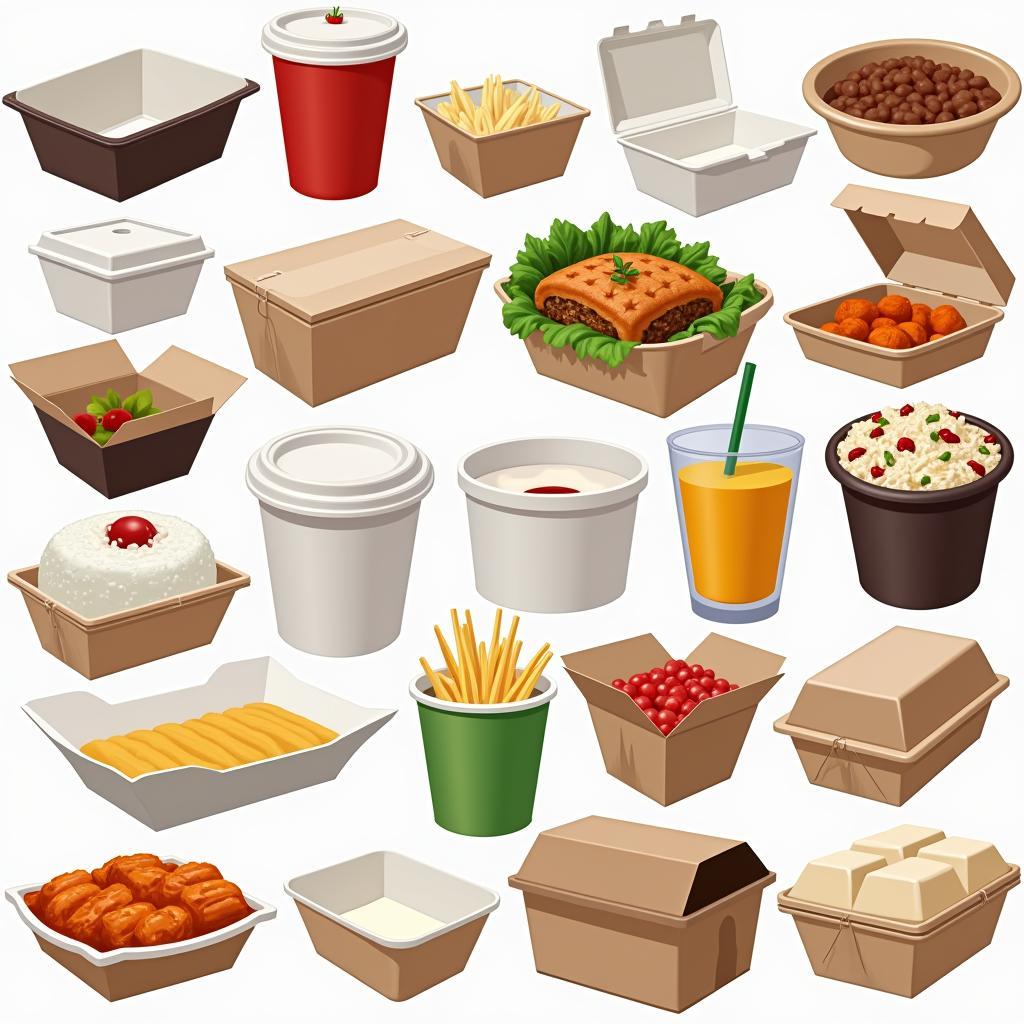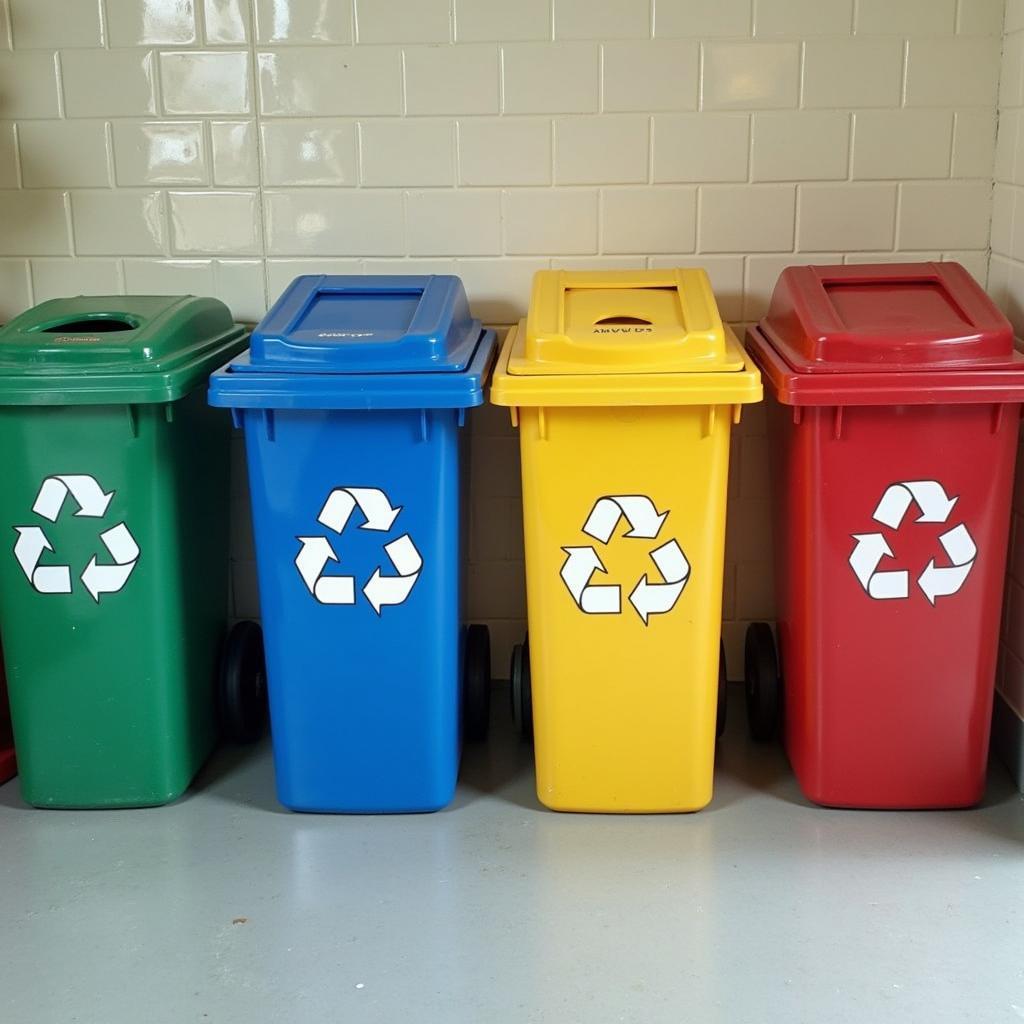Disposable Food Containers have become an indispensable part of our fast-paced lives, offering unparalleled convenience for both consumers and food businesses alike. From grabbing a quick lunch on the go to catering large events, these versatile containers have revolutionized the way we consume and enjoy food.
 Various Types of Disposable Food Containers
Various Types of Disposable Food Containers
Navigating the World of Disposable Food Containers: Materials and Their Benefits
Choosing the right disposable food container goes beyond mere convenience. It requires an understanding of the different materials available and their suitability for specific food types and applications.
Understanding the Options: A Closer Look at Popular Materials
- Plastic: Lightweight, affordable, and readily available, plastic containers remain a popular choice. Look for options made from recyclable or compostable plastics to minimize environmental impact.
- Paper/Cardboard: Ideal for dry and cold foods, paper-based containers offer a sustainable choice. Many are lined with plant-based coatings to prevent leaks and ensure durability.
- Bagasse (Sugarcane Pulp): A sturdy and compostable option, bagasse containers are perfect for hot and greasy foods. Their natural insulation properties keep food warm and prevent sogginess.
- PLA (Polylactic Acid): Derived from renewable resources like corn starch, PLA containers are both compostable and heat-resistant, making them suitable for a wide range of applications.
Matching the Material to Your Needs: A Practical Guide
When selecting a disposable food container, consider the following factors:
- Food type: The nature of the food, whether hot, cold, dry, or saucy, will influence your choice of material.
- Intended use: Are you packing a lunch, serving a takeaway meal, or catering a large event?
- Sustainability concerns: Opt for recyclable, compostable, or biodegradable options whenever possible.
Beyond Convenience: The Environmental Impact of Disposable Food Containers
While undeniably convenient, the widespread use of disposable food containers has raised concerns about their environmental impact.
Addressing the Challenges: Promoting Responsible Consumption
- Reduce, Reuse, Recycle: Embrace a conscious approach to disposable container use. Reduce consumption by opting for reusable alternatives when possible.
- Support Sustainable Choices: Choose containers made from recycled or renewable materials and support businesses that prioritize sustainability.
- Proper Disposal: Dispose of containers responsibly, following local recycling or composting guidelines.
 Recycling Bins for Different Materials
Recycling Bins for Different Materials
The Future of Food Packaging: Innovation and Sustainability
The food packaging industry is continuously evolving, driven by increasing demand for sustainable and innovative solutions.
Embracing Innovation: Bioplastics, Edible Packaging, and Beyond
- Bioplastics: Made from plant-based materials, bioplastics offer a promising alternative to traditional plastics, with comparable functionality and reduced environmental impact.
- Edible Packaging: Imagine a world where you can eat your packaging! Edible packaging, made from seaweed or other natural materials, is gaining traction as a zero-waste solution.
Making Informed Choices: Your Guide to Sustainable Food Consumption
As consumers, we hold the power to shape the future of food packaging through our choices. By understanding the impact of our decisions and supporting sustainable practices, we can contribute to a more environmentally responsible food system.
For all your disposable food container needs, contact Mina Cones Food at Phone Number: 02437655121, Email: minacones@gmail.com or visit us at 3PGH+8R9, ĐT70A, thôn Trung, Bắc Từ Liêm, Hà Nội, Việt Nam. Our dedicated customer service team is available 24/7 to assist you.